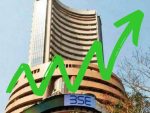
COVID-19: Gross NPAs likely to rise to near 20-year high
Team Udayavani, Jul 25, 2020, 11:54 AM IST

New Delhi: Gross non-performing assets are likely to spike to 12.5 per cent in the current financial year from 8.5 per cent at the end of March 2020, the Reserve Bank said on Friday even as it warned against excessive risk aversion by lenders in a “sound” financial system.
In the half-yearly Financial Stability Report (FSR), Reserve Bank of India Governor Shaktikanta Das said the top priority for lenders should be to raise capital proactively and maintain resilience in the COVID-19 scenario.
In the report, which comes amid the pandemic is yet to play out, the RBI said its stress tests indicate that the GNPA (Gross Non-Performing Assets) ratio of all scheduled commercial banks may shoot-up to 12.5 per cent in March 2021 from 8.5 per cent in March 2020 under the baseline scenario.
However, if the macroeconomic environment worsens further, the ratio of dud assets may escalate to 14.7 per cent under the very severely stressed scenario, it added.
Under baseline scenarios, state-owned banks’ GNPA ratio may increase to 15.2 per cent by March 2021 from 11.3 per cent in March 2020. The GNPA ratio of private banks and foreign banks may increase from 4.2 per cent and 2.3 per cent to 7.3 per cent and 3.9 per cent respectively, over the same period.
The system level capital adequacy is projected to drop from 14.6 per cent in March 2020 to 13.3 per cent in March 2021 under the baseline scenario and to 11.8 per cent under the very severe stress scenario, it said.
Das said the pandemic hit India amid moderation in growth and added that the policy responses since the onset of the crisis have stabilised the financial system and markets, although the outlook remains “highly uncertain”. “The challenges that lie ahead have to be addressed with the overarching objective of preserving long term stability of the financial system, which is critical for nurturing the recovery. Going forward, once we enter the post-pandemic phase, the focus would be on calibrated unwinding of regulatory and other dispensations,” he said.
According to him, the financial system is “sound” but in the “evolving milieu, while risk management has to be prudent, extreme risk aversion would have adverse outcomes for all”.
Revealing initial numbers of what has become a six-month moratorium or a voluntary loan repayment holiday, the RBI said over half of the borrowers by value have opted for the facility as of April.
“Given the fact that impact of the moratorium is still uncertain and evolving, the exact nature of how the same will play out on the quality of banking assets is difficult to ascertain accurately,” it said.
Even as fears are being expressed by experts about a spike in NPAs once the moratoriums are lifted, the FSR warned that the deferral of loan repayments may have implications for the financial health of banks going forward.
On the economic front, where analysts are pegging a contraction of up to 9.5 per cent, the FSR said the uncertainty over the timing will put significant downward pressure on growth momentum in FY21.
The ongoing crisis can aggravate the troubles for the non-bank finance companies and home finance companies, that have a higher portion of assets under moratorium, the report said.
Further, the report said NBFCs and HFCs (housing finance companies) are the largest borrowers of funds from the financial system, and a substantial part of this funding comes from banks. “Therefore, failure of any NBFC or HFC will act as a solvency shock to their lenders which can spread by contagion,” it warned.
From a segmental perspective, the report said private banks have turned risk averse since the onset of the second half of the FY20, when the economic growth has slid the most before getting into contraction mode in FY21, and have preferred the safer state-owned enterprises for their wholesale credit demand.
A systemic risk survey of experts, conducted in April and May, revealed a surge in global risks, macroeconomic risks, financial market risks and institutional risks in the last six months, the report said, adding that global growth, domestic growth and fiscal deficit were considered as “very high” risks.
On the regulatory front, the Financial Stability and Development Council (FSDC) along with its Sub Committee (FSDCSC) have been alert to emerging challenges, it said.
Going forward, it pitched for restarting financial sector reforms on their path of convergence with global best practices and standards in conditions best suited for India.
Udayavani is now on Telegram. Click here to join our channel and stay updated with the latest news.
Top News
Related Articles More

Kotak Mahindra Bank shares tank 13%; mcap erodes by Rs 37,721 crore post RBI action

Four-day market rally makes investors richer by Rs 8.48 lakh crore

Kotak Bank barred from onboarding customers online, issuing fresh credit cards

Reverse migration has begun, says FM Nirmala Sitharaman

Markets sustain winning streak — Sensex jumps over 560 points, Nifty tops 22,300-level
MUST WATCH
Latest Additions

NIA arrests key accused in 2023 attack on Indian High Commission in London

Three persons run over by train in Bengaluru

Indian nationals aboard ‘MSC Aries’ in good health, return delayed due to technicalities: MEA

Husband has no control over wife’s ‘stridhan’: SC

IT sleuths threatening raided leaders to claim money belongs to me, Cong: DK Shivakumar
























